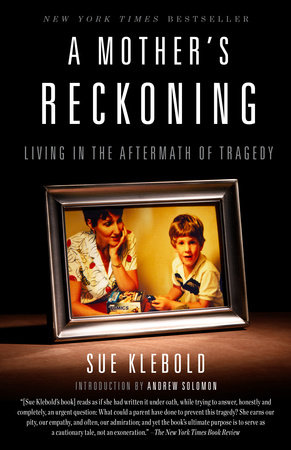
Rating: B/ Oh, Franklin. you should have worn the damned condom!
Okay, so maybe Eva Khachaturian wasn’t meant to be a mother. But is she responsible for making her son a monster? Society seems to think so. In the wake of a horrific attack orchestrated by Kevin, a sadistic fifteen-year-old psychopath, Eva (Tilda Swinton) is heckled on the street and sometimes outright attacked by people who lost their loved ones in the tragedy.
In a swirl of fever dream-like memories, past becomes present, and Eva remembers when her husband Franklin (John C. Reilly) and kids Kevin and Celie (Ezra Miller and Ashley Gerasimovich) were still with her. Eva never seemed to really want Kevin, a vile, evil, perpetually incontinent child turned killer teen who mind-fucked his mother from a very early age, but the real question is whether Eva could stop the direction her son was going.
Franklin, a happy guy in denial of Kevin’s true nature, condemns Eva for not connecting with her little moppet, and Kevin simultaneously gaslights Eva and turns Eva and her well-meaning but dopey husband against each other. Kevin might seem like a child of Satan or some other supernatural incarnate, but really he’s like thousands of other children in the world who really don’t seem to have a conscience- and who better to blame than the boy’s own mother?
Anyone who has seen filmmaker Lynne Ramsay’s Ratcatcher knows she has a propensity for both beautiful cinematography and grueling bleakness. We Need to Talk About Kevin, based on the best-selling novel by the same title by Lionel Shriver, is no exception. The film is intensely visual, with a kind of stream-of-consciousness style, especially around the beginning, and benefits from an outstanding performance by Tilda Swinton as the complex Eva.
Eva seems alternately like a bad mother and all-around ice queen and a woman trying to do best by her family, and one must wonder if her memory (and by extension, the whole movie’s narrative) is reliable as she paints a terrifying portrait of Kevin literally from babyhood to present day. The movie asks the question of whether we can always blame the parents of these children for the kids’ evil actions or if some youngsters are just bad eggs.

The answer to this question is often ambiguous here, but ultimately we decide that no, we can’t ultimately blame Eva for how ‘widdle Kevin’ turned out. It brings up the aged-old question of ‘nature vs. nurture’ in a new and interesting way, and packs a hell of a wallop in the process. This movie will make you think twice about going off the pill and make you wonder if having a little ball of joy of your own is overrated.
The part near the end of the movie at the school when Kevin’s plan goes full circle makes me think of a extra I saw on my parents’ DVD of the original Halloween. Donald Pleasence, who played Sam Loomis, told the director that he could play the sequence when Myers falls out the window after getting shot and somehow escapes into thin air one of two ways; ‘Oh my God, he’s gone’ or ‘I knew this would happen.’ Ultimately they decided on the latter because the former would be, well, too much.
That’s what I think of when I see Eva’s expression as she eyes the bicycle locks Kevin previously ordered in the mail on the doors of the school auditorium. Her expression is less a look of shocked horror as it is a look of resignation. I knew this would happen. On one hand, you wonder why Eva didn’t get her son major psychological help right off the bat, but on the other, could she really of prevented Kevin’s insanity if she had? After all, when you have a blissfully ignorant husband who refuses to believe your son has a problem, how are you going to get an evaluation carried out without his blessing?
All in all, We Need to Talk About Kevin is kind of like watching a train wreck, albeit a visually striking one with a handful of outstanding shots. It makes us women, whether we plan to be mothers or not, wonder how far maternal love goes and if you can be held culpable simply for not loving your child enough. Is it possible to love a monster? I think so. People do it all the time.
But for someone like Eva who obviously didn’t want to be a mother in the first place, her failure to love her son was ultimately ammunition for her evil child to use against her. Eva’s coldness is not an excuse for Kevin’s behavior anymore than Kevin being a difficult baby is an excuse for Eva to make very little effort with her offspring. One persons’ blame does not cancel the others’ out. But that’s not enough for other parent not to convince themselves that they could do better. Given the circumstances, could you?















